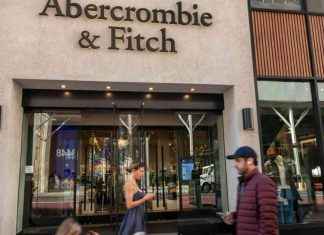By any measure, 2016 was a stellar year for the Pearl Street Mall the crown jewel of Boulder’s downtown core.
Sales tax revenue was up 10 percent, landlords fetched record lease rates for restaurants and retail shops, and 1.23 million visitors strolled along the manicured, motor-free street.
But elected officials, residents and even some merchants are grumbling over the recent departure of long-standing institutions, the arrival of corporate out-of-towners and the numerous stores sitting empty.
Old Chicago is out; Capital One is in and city council’s impromptu short-term ban on banks has put the question on the lips of many: What can be done to save Pearl Street from corporate America?
“It’s just gotten a little too slick,” said longtime resident Paul Parker. “I understand there’s loads of people coming in and spending money, but for locals, it’s not that exciting.”
Help? No thanks
To the 120 property owners who have staked claims downtown, the area isn’t in need of rescue.
“The mall is very vibrant,” said real estate magnate Stephen Tebo. “It’s probably about as strong as it has ever been.”
Despite that perspective, one vacancy rate is higher than at any time since 2007: Office space.
That’s primarily due to the addition of PearlWest on the west end, which drew away tenants like SolidFire from along the mall, according to Sean Maher, executive director of the Downtown Boulder Partnership.
Tebo owns 1247 Pearl, site of the former Boulder Cafe and now home to the bank that broke the council’s back. He is displeased with the moratorium, decrying it as anti-capitalist.
“The mall is very much a free-trade area,” he said. “If you can be on the mall and be successful, you should have the option to be there.”
With ever-rising rents, there’s fewer chances for local establishments to be successful — at least in the minds of some city council members, who are floating the idea of a freeze on national chains.
“No question there is a challenge there” for local businesses, Maher said.
Current listings for downtown retail space show prices between $43 and $45 per square foot, per month. Even so, Maher said 80 percent of downtown businesses are locally owned — one of the highest local-to-national ratios in the country.
According to Mayer, that heavy local mix didn’t come about by accident. Rather, it’s a result of property owners putting thought into whom they lease to.
“The first consideration is if it’s good for the mall,” said Tebo. “I’ve turned down several national chains that came in and offered more, and we always give preference to locals.”
Maher said the current tenant roster is an improvement over the late ’90s, when he himself had a shop on Pearl Street.
“There was Chicos, Sunglass Hut, Banana Republic, Abercrombie & Fitch — everything you’d find at every other mall in America.”
Today, he said, Pearl Street is a “model of success.”
“What’s going on?”
It’s not without it’s challenges, however.
Half a dozen retailers called it quits within recent months, and two more are about to join them: the bankrupt American Apparel will close 1130 Pearl St. at the end of the month and, right across the street, Crocs will shut down after Feb. 14.
Maher characterized the vacancy (“probably 5 percent”) and turnover as typical for the post-holiday time of year. And he has received four or five inquiries on almost every vacant space.
Neighboring merchants said a North Face specialty shop is slated for Crocs, but Tebo couldn’t confirm and the company did not respond to request for comment.
“There’s a lot of interest and a lot of people poking around very seriously. It’s not like these spaces have been around forever and they’re collecting dust.”
But retailers say the empty storefronts are making them — and their patrons — nervous.
“I have customers coming in asking what’s going on,” said Lindsay Shaw, owner of Lindsey’s Boulder Deli.
“To look out your door and see this empty, and that empty, it’s like, what’s happening?” added Joan Jones, co-owner of Goldmine Vintage.
Jones and Shaw also said foot traffic on the mall feels slower, and sales are down compared to last January at Goldmine.
One thing that hasn’t cooled off with the weather is the challenge posed by Boulder’s large transient population.
“They do drugs, they shower in my bathroom, they fall asleep on my toilet, they ask my patrons for money,” said Shaw. “It’s killing me.”
The homeless presence on the mall has been consistent since almost day one, but businesses say things have changed in recent years.
“It’s a younger group of travellers, not necessarily homeless, and they are the ones that are really a pain,” said Erika Armendariz, a manager at Rocky Mountain Chocolate Factory.
Armendariz said they come in for free samples and sometimes get “aggressive” with her and the customers. Shaw shared similar experiences.
“I want to help, of course,” she said. “It’s so challenging — emotionally and physically.”
Maher said he is well aware of the issues businesses are facing, and he’s hopeful the city will be willing to partner on solutions rather than forcing through more surprise measures.
“I want to work together to try and create more affordable options for local businesses, to create more exciting experiences for people,” he said.
“A free marketplace is going to evolve to serve the community here.”
To resident Parker, the evolution of Boulder and the “upscaling” of the mall is exactly the problem.
“There’s less flavor and spice than in the past,” he said. “I love the mall and walk it at least three times a week. It’s sort of like a city park.
“For me, a local pizza joint on the mall, that’s where it’s at.”
Shay Castle: 303-473-1626, castles@dailycamera.com or twitter.com/shayshinecastle
Our editors found this article on this site using Google and regenerated it for our readers.





